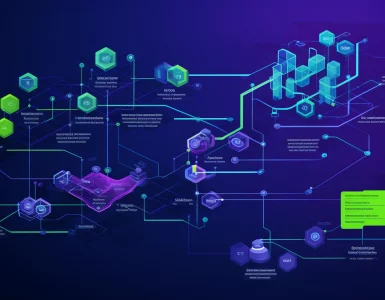Quality product development needs an intricate balance of skills, cooperation, leadership, and motivation. Within the testing team, QA engineers are responsible for designing test cases. Any application has three essential layers: the presentation, business, and database layers. A QA engineer’s role relates to both front-end and backend testing. They evaluate the presentation layer in front-end testing while business and database layers are part of backend testing.
We discussed with senior QA professionals to understand what hard and soft skills QA specialists should have in the future. This article will elaborate on our findings.
While QA engineers’ specific duties can be diverse depending on the project they are handling, there are some commonly required hard skills.
1. Maintaining the bug database
The primary role of a QA engineer is to track the development of a product in the context of bug fixes. QA testers must be able to maintain a bug database to know all the bug fixes and quality improvements for future reference.
When shipping a product, it is vital to consider existing bugs’ impact on the customers. A QA engineer can approve sending a product with bugs. In such a scenario, the professional should know the risks to ensure that they aren’t unmanageable.
2. Understanding the systems’ specifications
Each product has a specific system requirement. A QA engineer must match the systems involved in the development process with the actual use case system specifications. Understanding these specifications is important as it outlines the condition or capability the system must conform to. System specifications serve as a foundation for test plans and validate requirements for completeness and feasibility.
3. Familiarity with necessary tools for test management and bug tracking
Bug tracking is one of the core responsibilities of QA engineers. Knowledge of essential tools for bug tracking and test management is necessary. A desirable QA engineering candidate must be familiar with multiple bug tracking tools such as BugHerd, Marker.io, Zoho, Stryka, and Asana.
QA testers must also be familiar with test management tools such as Zephyr Sca, TestRail, Jira, and XQual. These tools track all testing activities, analyze data faster, and manage manuals and automation test cases.
4. Programming languages
For a QA engineer’s career progression, knowledge of specific programming languages is crucial. Automation is an integral part of QA testing. Companies prefer QA engineers who can perform UI (user interface) test automation using programming languages such as Python, Ruby, Java, and C#.
While technical skills are essential for the job, soft skills are required to communicate effectively. As a QA tester, it will be your responsibility to communicate issues and feedback between developers, clients, and other QA engineers.
The most important soft skills that can help QA testing professionals elevate their teams are:
Empathy
QA engineers work at the intersection of developers, clients, and companies. These professionals need to perceive a challenge from several viewpoints. Empathy is a trait of successful QA engineers as they can truly understand the aspects of the product that the client values the most.
Empathic QA testers try to understand the client’s priorities by asking the right questions. Once they gain the same perspective as the client, producing a successful end product becomes easier.
Attention to detail
The code that makes up a web application is the most important thing. A skilled QA engineer must go through hundreds of lines of code without losing focus to spot minor imperfections. Auditing the code and the system is necessary to create quality software.
Any QA engineer must be able to monitor and check defect-prone areas of a system to prevent bugs. Furthermore, they need to anticipate any flaws in the pipeline.
Communication skills
Communication is vital to being a proficient QA engineer. Effective communication is necessary as quality assurance involves liaising with clients, other QA engineers, and development teams.
An eligible QA tester must be able to express ideas and concepts in written and spoken communication. Additionally, they must be active listeners.
Diligence
Willingness to learn and evolve as a professional makes the best professionals. QA testers perform functions that require effort and studiousness to catch up with technology changes. Diligence is a soft skill that will help improve your hard skills and value as a professional. It will help if you keep learning to keep up with the trends and new practices in the QA domain.
Problem-solving skills
Every engineering discipline requires problem-solving skills. QA engineering is no different. Solving complex technical problems and software testing challenges is a routine task for QA engineers.
An ideal candidate must take an efficient approach to solve software development problems. QA engineer career progression depends on how efficiently you can solve technically intricate issues by designing unique solutions. We hope the list of skills will help you keep up with industry trends and become more proficient at your job.
Talent500 helps companies hire top QA engineers by connecting them with pre-vetted candidates. Join our community of QA testers to find career redefining opportunities.






Add comment